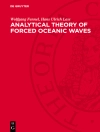As a result of the European Commission’s concern for the status of continental waters, and as a clear reflection of the notion of water as heritage to be conserved, in the year 2000 the Water Framework Directive (2000/60/CE) was enacted, its goal being to establish a framework to protect water and the different aquatic ecosystems by requiring the Member States to achieve a good ecological status in all their waters by 2015. Like all ecosystems, freshwater ecosystems undergo physical, chemical and energy-related changes, both of natural and anthropogenic origin. These disturbances affect the organisms living in them and those who utilize their resources. Therefore, evaluating these changes has become a very important task in order to better understand aquatic systems. The study and analysis of the ecological status of these ecosystems in relation to their conservation status and water quality is thus a fundamental tool for a more efficient and rational management of their resources, that is, a management that does not threaten the ecosystem. The present guide for the identification of Spanish freshwater macroinvertebrates aims to facilitate the job of those who go to great lengths to identify them in order to then determine biotic indices. It is not the aim of this book to serve as a zoological treaty, nor does it claim to add new information on the biology or the ecology of the taxa covered. This book is, simply, a working tool explicitly designed to facilitate the identification of the Spanish macroinvertebrates and the subsequent computing of biotic indices.
Table of Content
Chapter 1: Why, Where and How: an identification guide of macroinvertebrates.- Chapter 2: Identification Keys.- Chapter 3: Taxa description and Biology.












